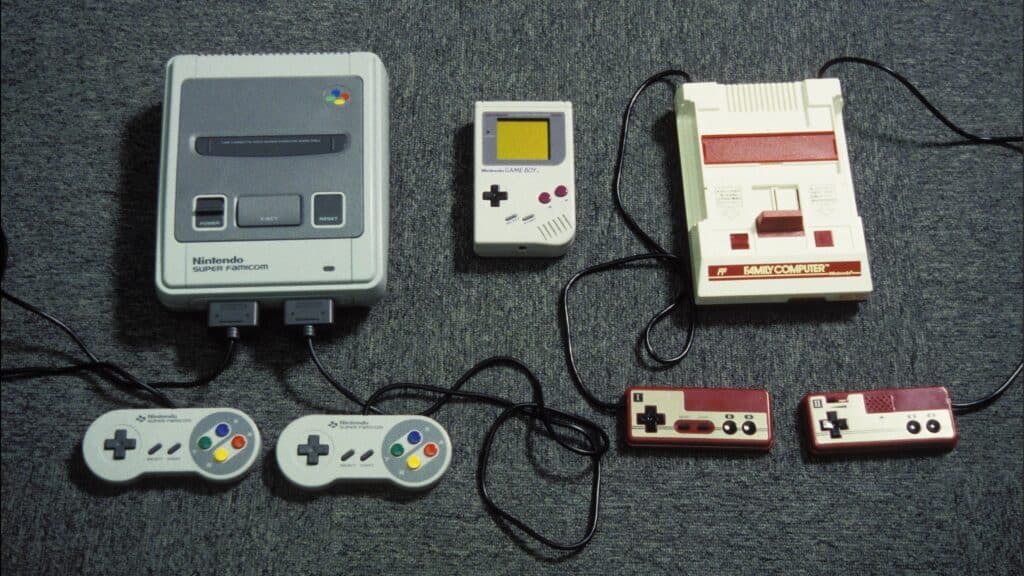Gaming has come a long way since the days of Pong and Space Invaders. From the rise of consoles like Atari and Nintendo to the current dominance of PCs and mobile devices, the gaming industry has continued to evolve and push the boundaries of technology. As we look to the future, there are countless new technologies and trends that are poised to revolutionize gaming even further. Let’s take a walk down memory lane with a look at the evolution of gaming, from its early days to its current state, and take a look at the potential impact of emerging technologies like virtual reality and blockchain on its future.

Humble beginnings
The beginnings of gaming can be traced back to the 1950s when a physicist named William Higinbotham created a simple game called Tennis for Two. The game was played on an oscilloscope and featured two dots and a line that represented a tennis ball and net. While the game was simple, it was a breakthrough in interactive entertainment and paved the way for what was to come.
In the 1970s, the world was introduced to Pong, a game created by Atari that was based on Higinbotham’s Tennis for Two. Pong was a massive hit and helped to launch the video game industry. It was played on arcade machines and featured two paddles and a ball that bounced between them. People would flock to penny arcades to play the game, and it quickly became a cultural phenomenon.
Soon after Pong’s success, the first home consoles were released. The Magnavox Odyssey, released in 1972, was the first home console to be commercially available. It featured games like Table Tennis, which was similar to Pong, and Haunted House, which used overlays to create a haunted house-themed game. While the console was not a commercial success, it laid the foundation for future home consoles.
In the years that followed, home consoles like the Atari 2600 and the Nintendo Entertainment System (NES) would become household names. These consoles brought gaming into people’s homes and helped to solidify the video game industry as a major player in the entertainment world.
Enter the personal computer
As the 1980s dawned, personal computers began to emerge as a new platform for gaming. The first home computers, such as the ZX Spectrum, Commodore 64, and Amiga, were powerful machines that allowed for more complex games with better graphics and sound.
The ZX Spectrum, released in 1982, was a popular home computer in the United Kingdom. It featured a wide variety of games, from arcade-style games to text adventures. The Commodore 64, released in the same year, was a more powerful computer that became popular in the United States. It also had a vast library of games, including classics like Maniac Mansion and The Bard’s Tale.
The Amiga, released in 1985, was a particularly powerful computer that was known for its advanced graphics and sound capabilities. It quickly became popular among gamers and was used to create some of the most visually stunning games of the era, such as Defender of the Crown and Shadow of the Beast.
While personal computers were growing in popularity, consoles continued to evolve as well. The Nintendo Entertainment System (NES), released in 1985, was a massive success and helped to revive the video game industry after the video game crash of 1983. The Sega Master System, released around the same time, also gained a following.
As the decade progressed, consoles continued to evolve with the release of the Super Nintendo Entertainment System (SNES) and the Sega Genesis. These consoles featured more advanced graphics and sound capabilities and became some of the most popular consoles of the pre-internet era.
PC gaming and shareware
In the early 1980s, the IBM PC was introduced, which revolutionized personal computing and created a new market for video games. With the introduction of the PC, video games became more sophisticated and complex. Developers began to create more ambitious games, such as adventure games and role-playing games, which would become staples of the PC gaming world.
One of the defining features of the PC gaming market was the emergence of shareware. Shareware was a distribution model in which a game was distributed for free, but users were encouraged to pay for the full version if they enjoyed it. This model proved to be incredibly successful, as it allowed developers to get their games into the hands of as many people as possible while still making money.
Then the internet came along, and things changed fundamentally.

Gaming online
The arrival of the internet in the mid-1990s brought about a new era of possibilities for gamers and game developers. Online gaming was made possible, although the experience was hampered by slow connections. Despite this, gamers could now play games with friends and strangers from around the world, creating a new way to enjoy games. Additionally, the emergence of browser-based games like those found on Miniclip and Newgrounds became a major hit, offering a wide range of casual games that could be played from anywhere with an internet connection.
Furthermore, the introduction of online casinos around this time created an offshoot of the gaming industry. Players could now enjoy gambling from the comfort of their own homes, with access to a wide range of games and betting options. While early online casinos were often seen as unreliable, today they are a popular and well-established way for players to bet real money on games like poker, slots, and blackjack. You can check out some of the top picked online casinos for real money at gamblingsites.org.
The state of the gaming industry today
Today, the gaming industry is flourishing and has become a massive global entertainment phenomenon. The industry has experienced significant growth in recent years, with the rise of esports, mobile gaming, and virtual reality. Esports tournaments now draw massive crowds and have created a new form of professional gaming, with players competing for large cash prizes. The mobile gaming market has also exploded, with millions of players worldwide enjoying games on their smartphones and tablets.
Virtual reality has also become an increasingly popular way to experience games, with advancements in technology making it more accessible and immersive than ever before. The gaming industry has also seen a shift towards digital distribution, with more players opting to buy and download games online rather than buying physical copies. This has led to the growth of game streaming services, such as Nvidia GeforceNOW, allowing players to enjoy games on demand.
Despite the growth and success of the gaming industry, there are still challenges that it faces. One of the biggest issues is the ongoing debate surrounding loot boxes and microtransactions, with some critics arguing that they encourage gambling and exploit players. Another issue is the ongoing need to address diversity and representation within games and the gaming industry, ensuring that all players feel welcome and included.
Overall, the gaming industry today is in a strong position, with a diverse range of games and experiences available to players worldwide. The industry is constantly evolving and pushing the boundaries of what is possible, making it an exciting time to be a gamer.
What does the future hold for gaming?
The future of gaming is set to be shaped by emerging technologies that will change the way we play and experience games. One of the most significant advancements is the development of cloud gaming, which allows players to stream games over the internet without the need for expensive hardware. This technology has the potential to make high-end gaming more accessible to a wider audience and could lead to new business models for game developers.
Virtual and augmented reality will continue to evolve, with new hardware and software advancements making these experiences more immersive and realistic. The use of haptic feedback technology will enhance the sensory experience of playing games, allowing players to feel the impact of in-game actions and environments.
The use of artificial intelligence (AI) is also set to revolutionize gaming, with machine learning algorithms used to create more advanced and adaptive NPCs, smarter enemies, and more realistic simulations. This technology could lead to more dynamic and engaging game experiences, as well as more sophisticated virtual worlds.
Blockchain technology is also gaining traction within the gaming industry, with the potential to improve areas such as asset ownership and distribution, as well as facilitate secure and transparent in-game economies. This technology could also be used to create more decentralized gaming platforms, enabling more equitable distribution of rewards and profits.
Final words
The evolution of gaming has been nothing short of remarkable. From humble beginnings with simple games like Tennis for Two and Pong to the rise of consoles like Atari and Nintendo, and the current dominance of PCs and mobile devices, the gaming industry has continued to evolve and push the boundaries of technology. With the emergence of new technologies like virtual reality and blockchain, the future of gaming looks bright and promising. The internet has also played a crucial role in the evolution of gaming, enabling online gaming, browser-based games, and online casinos. Today, the gaming industry is a massive global entertainment phenomenon that shows no signs of slowing down.
















